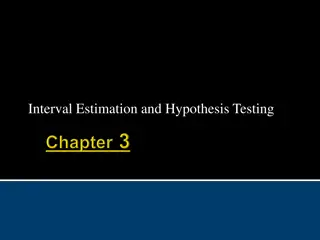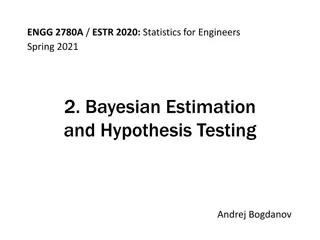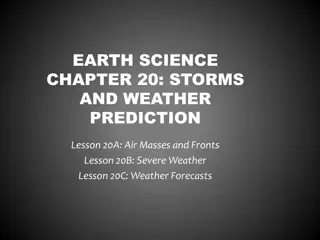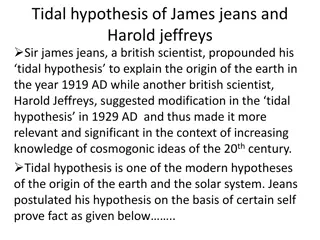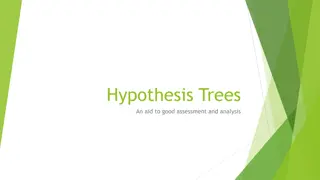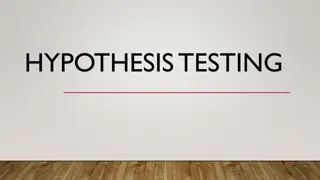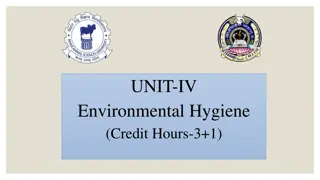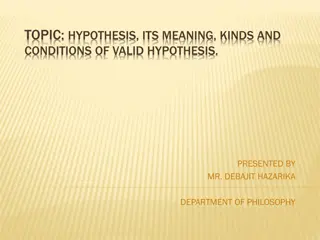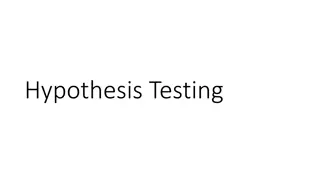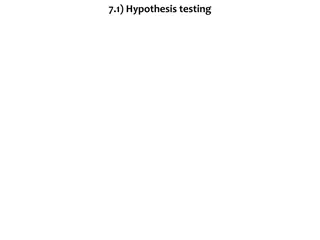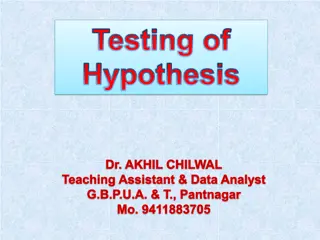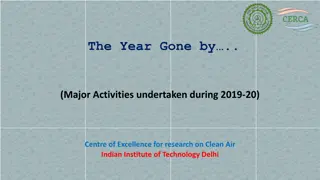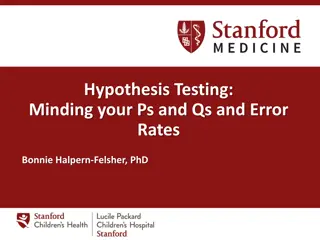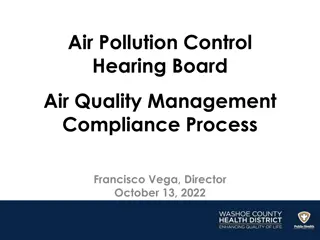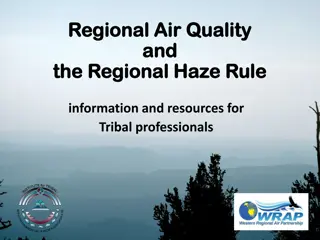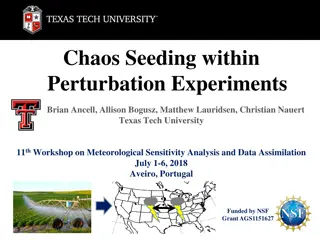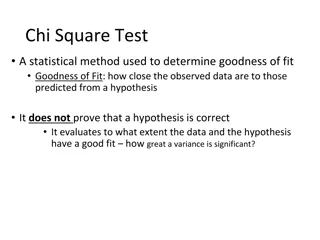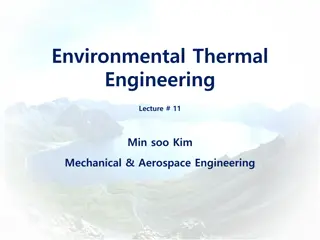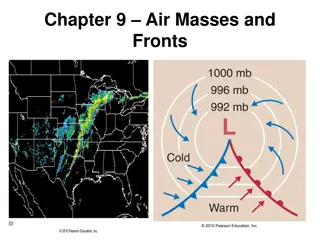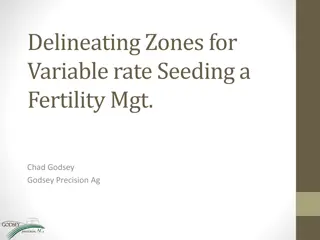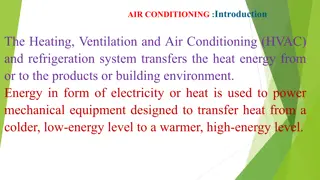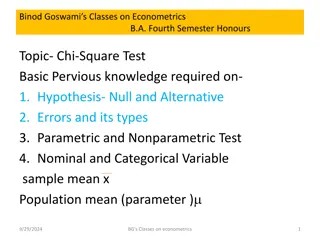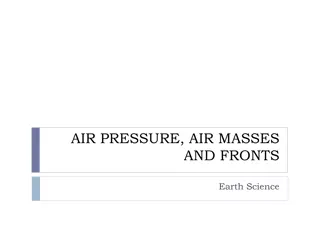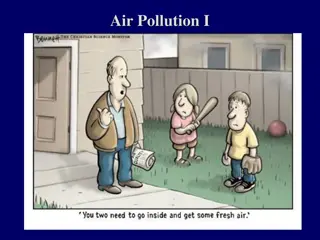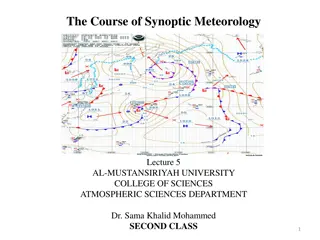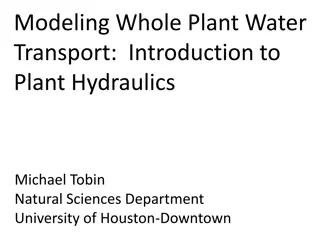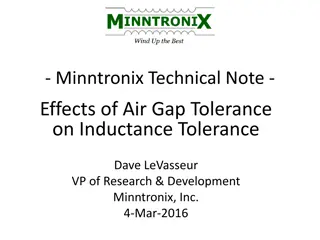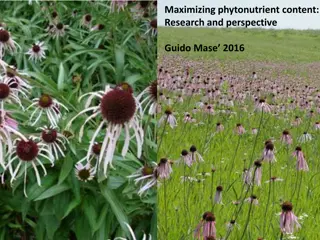Why Refrigerated Air Dryers Are Essential for Your Compressed Air System
If you want a proper air supply, then you need to maintain quality and efficiency in your air compressors. One essential component for maintaining peak performance and efficiency is the refrigerated air dryer. These devices remove moisture from compressed air, preventing damage to equipment and ensu
3 views • 6 slides
How Do I Change My Air Canada Flight
Air Canada's fees for changing flights can vary depending on several factors, including the type of ticket you purchased, the fare rules associated with your ticket, and the specific changes you want to make to the Air Canada Flight Change Policy. However, here are some general guidelines:\n\nVisit
4 views • 6 slides
Best Air Con service in Rogans Hill
Are you looking for the Best Air Con service in Rogans Hill? Then contact MaXim Air Conditioning and Mechanical Services. They have more than 15 years of experience working with all types of cooling and heating systems for residential homes and commercial buildings. They specialise in ducted air con
1 views • 6 slides
Professional Air Duct Cleaning Experts
Do you think that your dirty air ducts can cause allergy woes? At Beltway Air Duct Cleaning, we provide professional air duct cleaning services to remove dust, allergens, and other pollutants that can build up over time. Our duct cleaning services help you improve indoor air quality and can assist t
0 views • 5 slides
Understanding Interval Estimation and Hypothesis Testing in Statistics
The concept of interval estimation and hypothesis testing in statistics involves techniques such as constructing interval estimators, performing hypothesis tests, determining critical values from t-distributions, and making probability statements. Assumptions must be met in linear regression models
0 views • 25 slides
Bayesian Estimation and Hypothesis Testing in Statistics for Engineers
In this course on Bayesian Estimation and Hypothesis Testing for Engineers, various concepts such as point estimation, conditional expectation, Maximum a posteriori estimator, hypothesis testing, and error analysis are covered. Topics include turning conditional PDF/PMF estimates into one number, es
1 views • 16 slides
Understanding Air Masses, Fronts, and Severe Weather in Earth Science
In Chapter 20 of Earth Science, we delve into the dynamics of air masses, fronts, and severe weather. Meteorologists study the movement and characteristics of air masses to predict weather changes. Air masses, defined by their temperature and humidity, interact at fronts, leading to precipitation an
0 views • 7 slides
The Tidal Hypothesis of James Jeans and Harold Jeffreys: Origin of the Earth
The Tidal Hypothesis proposed by British scientists James Jeans and Harold Jeffreys in the early 20th century suggested that the Earth and solar system were formed from the interaction of the Sun and an intruding star. Jeans postulated that massive gravitational forces from the intruding star caused
2 views • 5 slides
Understanding Hypothesis Trees for Effective Assessment and Analysis
Hypothesis trees offer a structured approach to analysis by identifying problems, potential causes, testing hypotheses, and reaching conclusions. They enhance evidence gathering and ensure the child's perspective is central in assessments. Utilizing stages like problem identification, cause analysis
1 views • 11 slides
Understanding Type I and Type II Errors in Hypothesis Testing
In statistics, Type I error is a false positive conclusion, while Type II error is a false negative conclusion. Type I error occurs when the null hypothesis is incorrectly rejected, leading to a conclusion that results are statistically significant when they are not. On the other hand, Type II error
0 views • 6 slides
Understanding Environmental Hygiene: Air Pollution and Composition of Air
The content delves into the concept of atmospheric pollution, the composition of pure and impure air, sources of air pollution, and the zones of the atmosphere. It highlights the detrimental effects of pollutants on health and the environment, emphasizing the importance of environmental hygiene. The
1 views • 27 slides
Understanding Hypothesis: Meaning, Types, and Validity Conditions
A hypothesis is a provisional supposition used to explain a fact or phenomenon, serving as a starting point in investigations to establish causal connections. This article explores the meaning of hypothesis, different types, conditions for validity, and examples. Definitions by prominent philosopher
0 views • 22 slides
Understanding Hypothesis Testing and Null vs. Alternative Hypotheses
A hypothesis is a prediction about a study's outcome, guiding research direction. Stating hypotheses forces deep thinking and making specific predictions but may introduce bias. Null hypothesis (H0) states no effect, while alternative hypothesis (Ha) claims an effect in the population. Researchers e
0 views • 7 slides
Hypothesis Testing Examples and Scenarios
Explore various scenarios involving hypothesis testing, including coin bias, dice rolling, and election candidate support estimation. Learn to define test statistics, null and alternative hypotheses, select significance levels, and determine conditions for rejecting the null hypothesis based on samp
0 views • 9 slides
Understanding Hypothesis Testing in Statistical Analysis
Statistical analysis aims to make inferences about populations based on sample data. Hypothesis testing is a crucial aspect where decisions are made regarding accepting or rejecting specific values or parameters. Statistical and parametric hypotheses, null hypotheses, and decision problems are key c
1 views • 34 slides
Research Highlights: Clean Air Initiatives at IIT Delhi (2019-20)
A comprehensive overview of the major activities undertaken by the Centre of Excellence for research on Clean Air at the Indian Institute of Technology Delhi during 2019-20. The initiatives include research projects, monitoring air pollution in Delhi-NCR, assessment and prediction of air quality usi
0 views • 26 slides
Understanding Hypothesis Testing in Statistics
Hypothesis testing is essential in scientific inquiry, involving the formulation of null and alternative hypotheses at a chosen level of significance. Statistical hypotheses focus on population characteristics and are tested on samples using probability concepts. The null hypothesis assumes no effec
0 views • 26 slides
Understanding Air Pollution and Its Impact on Health and Environment
Air pollution poses a significant threat to human health, the environment, and the economy. The Clean Air Act has played a crucial role in reducing air pollutants since its establishment in 1963. Criteria air pollutants such as ozone, particle pollution, carbon monoxide, lead, sulfur dioxide, and ni
1 views • 11 slides
Air Quality Management Division Overview
The Air Quality Management Division in Reno, Sparks, and Washoe County focuses on implementing clean air solutions through community partnerships and various programs and services such as air monitoring, permitting, compliance, planning, and public education. The division ensures compliance with amb
1 views • 8 slides
Regional Air Quality and Visibility for Tribal Professionals
Understanding regional air quality, visibility, and the impacts of regional haze is crucial for tribal professionals. Clean air is essential for health and cultural practices, while polluted air can diminish visibility and lead to various health and environmental issues. The Clean Air Act aims to co
0 views • 27 slides
Track Events Qualification Rounds and Seeding Guidelines Overview
Understanding the importance of qualification rounds in track events with a focus on ensuring fair competition and optimal athlete selection strategies. Exploring the specifics of seeding criteria and process for better event organization and athlete performance evaluation.
0 views • 29 slides
Investigating Chaos Seeding in Perturbation Experiments
This research project conducted at Texas Tech University delves into the effects of chaos seeding within perturbation experiments on atmospheric conditions, with a focus on local and nonlocal modifications resulting from factors such as irrigation, wind farms, and urban development. By analyzing tin
0 views • 24 slides
Understanding Chi-Square Test for Goodness of Fit
Chi-square test is a statistical method used to assess how well observed data match the predicted values from a hypothesis. It does not confirm the hypothesis but measures the extent of fit between data and the hypothesis. This test is crucial for determining the significance of differences between
0 views • 10 slides
Understanding Hypothesis Testing in Statistics
Explore the concept of hypothesis testing through an engaging scenario involving Edison light bulbs. Learn about factors influencing hypothesis testing such as variability, sample size, and sample mean. Discover the logic behind hypothesis testing using Jake's napkin dispensers example. Enhance your
0 views • 28 slides
Excised Biopsy Tract Histology for Primary Bone Tumours: Necessity of Excision Examined
Investigating the necessity of excising biopsy tracts in primary bone tumours, this study analyzed 278 patients over a span of two years. Findings indicated conflicting evidence regarding the risk of malignant seeding in biopsy tracts, with only one patient showing histological evidence of seeding.
0 views • 14 slides
Introduction to Environmental Thermal Engineering: Air Conditioning Systems and HVAC Applications
This lecture covers the fundamentals of air conditioning systems, including the equipment, HVAC systems, and applications. It explains the concept of air conditioning, its processes, and its significance in controlling temperature, humidity, cleanliness, and air distribution for occupant comfort. Ad
0 views • 85 slides
Understanding Air Masses and Fronts in Meteorology
Exploring Chapter 9 on air masses and fronts, this topic delves into the significance of air masses in influencing weather patterns. It explains how air masses develop specific characteristics based on their source regions, which can be warm and moist or warm and dry, depending on where they form. T
0 views • 90 slides
Precision Agriculture Techniques for Variable Rate Seeding
Precision agriculture practices, led by experts like Chad Godsey, focus on tailored approaches for variable rate seeding. The philosophy emphasizes individualized planning and continuous dialogue with producers. Utilizing yield data and prescriptions, decision-making is based on various factors like
0 views • 17 slides
Understanding the Basics of Air Conditioning and HVAC Systems
Introduction to the Heating, Ventilation, and Air Conditioning (HVAC) system along with the key components and functions involved in maintaining indoor comfort levels such as temperature, humidity, air quality, and air movement. Explains the importance of controlling the atmospheric environment for
0 views • 24 slides
Understanding Hypothesis Testing in Statistics
Hypothesis testing is a fundamental concept in statistics that involves testing statements about population parameters. This content covers the basics of hypothesis testing, including types of hypotheses, examples, and the procedure involved in statistical hypothesis testing. It also explores the im
0 views • 23 slides
Understanding Hypothesis Testing in Statistics
This content discusses the fundamentals of hypothesis testing based on a single sample in statistics. It covers the assumptions for inference, the parts of a hypothesis test, statistical hypotheses, and provides examples of hypothesis tests and significance tests in practical scenarios. The importan
0 views • 69 slides
Understanding Hypothesis Testing and Types of Errors in Econometrics
Hypothesis testing is vital in econometrics to evaluate statements about population parameters. The null hypothesis assumes no difference, while the alternative hypothesis offers a different perspective. Different types of errors—such as Type I and Type II errors—can occur during hypothesis test
1 views • 11 slides
Understanding Air Pressure, Air Masses, and Fronts in Earth Science
Explore the concepts of air pressure, air masses, and fronts in Earth Science. Learn about the influence of high and low-pressure systems, isotherms, pressure centers, global winds, the Coriolis Effect, and how air masses like continental and maritime affect weather patterns. Discover the impact of
0 views • 24 slides
Historical Overview of Air Pollution: From London Smog to Modern Sources
Explore the history of catastrophic air pollution events dating back to 1911 in London, highlighting the impacts on public health. Learn about the major classes of air pollutants, their sources, and effects, along with key test questions related to air quality and pollution control measures. Delve i
0 views • 32 slides
Understanding Air Masses in Synoptic Meteorology
Air masses are large bodies of air with uniform temperature and moisture conditions, influencing weather patterns across vast regions. Source regions play a key role in determining the characteristics of air masses, with factors such as stability of atmospheric circulation and surface properties sha
1 views • 17 slides
Understanding Plant Hydraulics: Water Transport and Photosynthesis
Explore the fascinating world of plant hydraulics through the lens of water transport and photosynthesis. Delve into the cohesion-tension theory, air seeding hypothesis, and the impact of soil moisture on plant conductance. Discover the intricate mechanisms that govern how plants move water and nutr
0 views • 13 slides
Understanding Hypothesis Testing in Statistics
This content explores the concept of hypothesis testing in statistics, covering the procedures, general research questions, examples, and hypothesis design. It explains the formulation of hypotheses, decision criteria, significance levels, and the importance of testing population parameters. Various
1 views • 97 slides
Understanding Air Masses in Weather Prediction
Air masses play a crucial role in weather patterns. They are large bodies of air with consistent temperature and humidity characteristics. Different types of air masses, such as Continental Polar and Maritime Tropical, influence weather conditions based on their properties. Weather fronts form where
0 views • 9 slides
Understanding the Effects of Air Gap Tolerance on Inductance Tolerance
This technical note delves into the impact of air gap tolerance on inductance tolerance in transformer manufacturing. It explains how controlling the core's air gap dimension is crucial for maintaining desired inductance levels within manufacturing constraints. The text discusses the small scale of
1 views • 10 slides
Understanding Plant Chemistry and Phytonutrients: Insights from Research
Exploring the diverse world of plant chemistry, this content delves into primary and secondary metabolites, highlighting the significance of phytonutrients in maximizing nutritional content. Various hypotheses such as the Insecticide Hypothesis and Co-evolution Hypothesis are discussed, shedding lig
0 views • 61 slides




